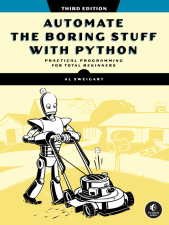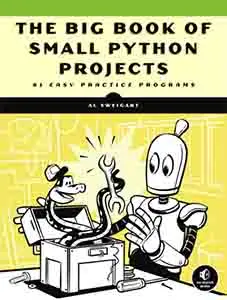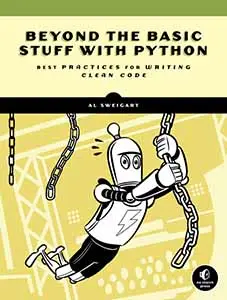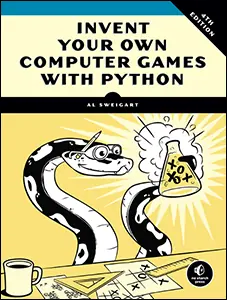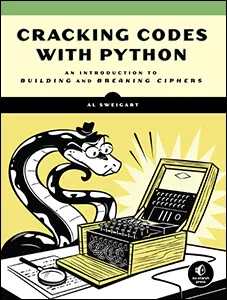No, Seriously, Why Should I Learn to Code?
Posted by Al Sweigart in misc
The geeks have inherited the earth. A couple decades ago if you talked with friends in a chat room, you were cast as a socially-awkward nerd. Doing the same today just means you're a typical Facebook user. Broadband Internet connections and smartphones have taken the Information Age that technically started in the 1970s with PCs and pushed it into daily mainstream life.
Along with this culture change is a social anxiety: Should I learn to code? Is coding the new literacy? Will I program or be programmed? This is not a new anxiety. Here's a New York Times article, Personal Computers; Does Everyone Need to Learn Programming? It was written in 1984.
Like with all panics, entrepreneurs and pundits (including myself) come out of the woodwork to offer their opinions or push their products. Software developer Jeff Atwood gives a plea to not learn how to code (a position I sharply disagree with). There are many websites and bootcamps (ranging from free to overpriced) to teach beginners programming. Most of them (in my opinion) are terrible.
Don't get me wrong: You should learn to program. But lost in this hype is a plainspoken reason: NO, SERIOUSLY, WHY SHOULD I LEARN TO CODE?
Here are bogus reason you should learn to code that you'll find in most everyone-should-learn-to-code rhetoric:
- To become a software engineer and make six-figures. If you are interested in becoming a developer, by all means follow up on it. But if you enjoy your current career, you don't have to leave it. The world needs more than just software developers.
- To make the next Facebook or Flappy-Bird and become a millionaire. Most startups fail. Software startups require much more programming skill than a run through of Codecademy can provide, and programming is not the most important skill to have when starting a business.
- To build critical-thinking and problem-solving skills. Ehhh... sort of. But people who give this reason often leave out what exactly that means or why coding provides it.
- You can put in on your resume. Ehhh... again, true, but how coding applies to most non-developer jobs is left unstated.
- To build a website. HTML is not a programming language, and web design is a different skill set to coding. But anyway, if you just want a website presence, sign up for a free WordPress blog.
- Because other people are saying you should. This is a terrible reason to do anything.
Before I go into the real reasons you, your friends, your neighbors, your cat, and everyone should indeed learn to code, consider this anecdote:
A math teacher is giving a lesson on logarithms or the quadratic equation or whatever and is asked by a student, "When will I ever need to know this?"
"Most likely never," replied the teacher without hesitation. "Most jobs and even a lot of professions won't require you to know any math beyond basic arithmetic or a little algebra."
"But," the teacher continued, "let me ask you this. Why do people go to the gym and lift weights? Do they all plan on becoming Olympic weight lifters, or professional body builders? Do they think they'll one day find an old lady trapped under a 200 pound bar bell and say, 'This is what I've been training for.'"
"No, they lift weights because it makes them stronger. Learning math is important because because it makes you smarter. It forces your brain to think in a way that normally it wouldn't think: a way that requires precision, discipline, and abstract thought. It's more than rote memorization, or making beautiful things, or figuring out someone's expectations and how to appease them. Doing your math homework is practice for the kind of disciplined thinking where there are objective right and wrong answers. And math is ubiquitous: it comes up in a lot of other subjects and is universal across cultures. And all this is practice for thinking in a new way. And being able to think in new ways, more than anything, is what will prepare you for an unpredictable, even dangerous, future."
Learning to program a computer, even if you don't plan on becoming a software engineer, has three similar reasons to pursue it:
- Learning to code is also great practice for precise, disciplined, and abstract thinking. A program either works, or it doesn't. It could have bugs, straightforward or subtle, that require analysis and concentration. But unlike math, a program does something immediately practical. (Mathematicians, please don't shoot me for saying this.)
- Programming transforms your computer from a home appliance to a power tool. Whether you have an office job, are a student, or just go online a lot, people use computers to get stuff done. But some tedious, lengthy computer tasks are so specific or context-dependent that no one has produced software to do it. (My next programming book addresses exactly these kinds of problems.) Even without deep programming knowledge, coding becomes a large productivity multiplier. Computers are everywhere; they should be tools, not appliances. A tool is something you sharpen, an appliance is something you replace.
- Learning to program is great practice for learning itself. Professional software developers use Google daily to answer questions or find documentation for their work. During the course of coding you will come up with several questions that will require you to seek out an answer. Googling is a skill in itself: figuring out which keywords to use, identifying useless advice and generic platitudes on content-farm sites, knowing how to ask a question. (The last one is so complex it has its own 24-page FAQ.) These aren't arbitrary word problems or Sudoku puzzles you are answering. Learning to code involves learning how to find real help for yourself.
Cory Doctorow wrote an article that even before learning to code, we should be teaching kids how to use regular expressions. "Regexes" are ways to specify a pattern of text. Your word processing software most likely lets you use regular expressions for its find-and-replace feature. Regular expressions can be used for an app's search feature. This is a skill that magnifies your power as a user. And once a populace is literate in regular expressions, software developers will increasing make use of them in more capable and powerful apps.
The same can be true with programming. Imagine what software could be like if the populace were literate in basic programming. Instead of apps, we could have APIs. Users could tie together the different services and programs they use. It would tear down the walled-gardens that Facebook, Apple, Twitter, and Google have erected to maintain their monopolies. It would pave the roads for improving the Information Age the same way the printing press improved literacy.
There are plenty of skills people can learn to become well-rounded human beings: Playing an instrument, public speaking, budgeting, first aid, growing plants, persuasive writing, babysitting, identifying scams, et cetera, et cetera.
But programming is unique among these skills. Programming is a practical skill on a tool you already use every day. Learning it provides abundant, but not pointless, intellectual hurdles to train your brain. It can save you time on computer-based tasks while opening your eyes to accomplishments that were previously unfeasible. That is why you should seriously learn to program.
